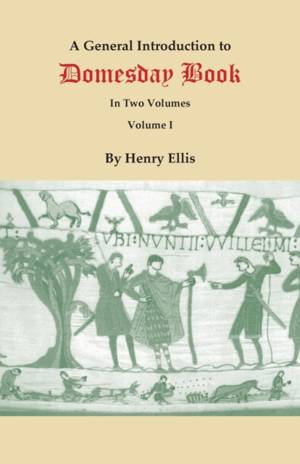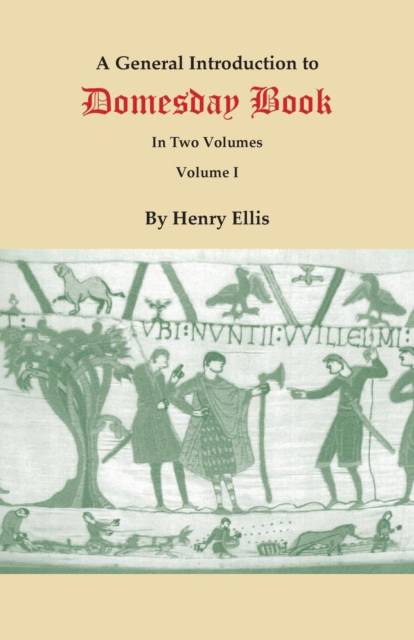
Bedankt voor het vertrouwen het afgelopen jaar! Om jou te bedanken bieden we GRATIS verzending (in België) aan op alles gedurende de hele maand januari.
- Afhalen na 1 uur in een winkel met voorraad
- In januari gratis thuislevering in België
- Ruim aanbod met 7 miljoen producten
Bedankt voor het vertrouwen het afgelopen jaar! Om jou te bedanken bieden we GRATIS verzending (in België) aan op alles gedurende de hele maand januari.
- Afhalen na 1 uur in een winkel met voorraad
- In januari gratis thuislevering in België
- Ruim aanbod met 7 miljoen producten
Zoeken
€ 86,95
+ 173 punten
Omschrijving
Domesday Book, the famous land and population census held during the time of Edward the Confessor (d. 1066) and William the Conqueror, is Britain's oldest public record and the true starting point of English genealogy. Ellis' work is designed to throw light upon the holdings of lands as well as instances of the hereditary descent of land from those who had possession in Saxon times. By far the greatest achievement of the work is the three indexes which comprise alphabetical lists of the names of all landowners and tenants, instancing the counties wherein they held land, the location of the original citation in Domesday Book, and details of their properties, marriages, and heirs. The first index contains over 1,500 names of landowners who held land from William the Conqueror; the second contains 5,000 names of persons entered in Domesday Book as holding lands in the time of Edward the Confessor and through later years anterior to the survey; and the third index includes over 3,000 listings of the under-tenants of land at the formation of the Domesday survey.
Specificaties
Betrokkenen
- Auteur(s):
- Uitgeverij:
Inhoud
- Aantal bladzijden:
- 538
- Taal:
- Engels
Eigenschappen
- Productcode (EAN):
- 9780806348391
- Verschijningsdatum:
- 10/06/2013
- Uitvoering:
- Paperback
- Formaat:
- Trade paperback (VS)
- Afmetingen:
- 140 mm x 216 mm
- Gewicht:
- 616 g

Alleen bij Standaard Boekhandel
+ 173 punten op je klantenkaart van Standaard Boekhandel
Beoordelingen
We publiceren alleen reviews die voldoen aan de voorwaarden voor reviews. Bekijk onze voorwaarden voor reviews.









